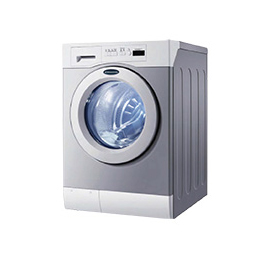Tile Adhesive Mortar and the Role of Redispersible Powder (RDP)
Tile adhesive mortar plays a crucial role in the construction and renovation industry, providing the essential bond between tiles and various substrates. To enhance the performance and durability of tile adhesive mortar, redispersible powder (RDP) has emerged as a significant additive. RDPs improve the workability, adhesion, and flexibility of tile adhesives, making them indispensable in modern construction practices.
Understanding RDP
Redispersible powder is a water-soluble polymer that, once added to cement-based mixtures, improves their properties. After application, when the water evaporates, the powdered polymer particles coalesce, forming a continuous film that enhances the adhesive characteristics of the mortar. These powders are typically derived from synthetic polymers like ethylene-vinyl acetate (EVA) and styrene-acrylic, which are known for their strong adhesive properties and resistance to environmental stresses.
Benefits of Using RDP in Tile Adhesive Mortar
1. Improved Adhesion One of the primary advantages of incorporating RDP into tile adhesive mortar is the significant increase in adhesion strength. This is particularly vital for a variety of surfaces, including ceramics, porcelain, and natural stones. The enhanced adhesion reduces the risk of tile detachment, ensuring long-lasting installations.
2. Workability RDPs enhance the workability of the mortar, allowing for smoother application and better manipulation during the tiling process. This is particularly beneficial for contractors and tilers, as it reduces labor time and improves the overall efficiency of the installation process.
tile adhesive mortar redispersible powder rdp

3. Flexibility and Crack Resistance The addition of RDP enhances the flexibility of tile adhesives, which is crucial in accommodating movement caused by temperature fluctuations or building settlement. This flexibility helps prevent cracks and ensures the longevity of the tiled surface, especially in external environments or high-traffic areas.
4. Water Resistance RDP-modified tile adhesive mortars often exhibit improved water resistance. This is particularly important in wet areas such as bathrooms and kitchens, where moisture can compromise the integrity of the adhesive and lead to long-term damage.
5. Versatility RDPs allow for the formulation of tile adhesives suitable for a wide range of applications. Whether for interior or exterior use, in heated floors, or in high-moisture environments, RDP-modified mortars can be tailored to meet specific needs.
Conclusion
The use of redispersible powder in tile adhesive mortars represents a significant advancement in construction materials. By improving adhesion, workability, flexibility, and water resistance, RDP enhances the performance of tile adhesives, resulting in more robust and durable installations. As the industry continues to evolve, the adoption of innovative additives like RDP will be essential in meeting the demands of modern construction and renovation projects.
For contractors, architects, and builders, the incorporation of RDP into tile adhesive formulations is not just an option but a necessity, ensuring that their projects stand the test of time while also providing superior aesthetic appeal. Ultimately, the synergy between tile adhesive mortar and RDP contributes to the overall quality and durability of tiled surfaces, paving the way for successful build-outs in both residential and commercial settings.
-
Premium Detergent Grade HPMC Hydroxypropyl Methylcellulose: Superior Thickening & StabilityNewsAug.31,2025
-
HEC 100000 Hydroxyethylcellulose for Paint | Superior ThickeningNewsAug.30,2025
-
Wall Putty Rdp Powder Packaging DesignNewsAug.29,2025
-
Introduction to Hpmc Hydroxypropyl Methyl CellulosNewsAug.29,2025
-
Hpmc Industri Grade IntegrationNewsAug.29,2025
-
How to Choose the Right Construction AdhesiveNewsAug.29,2025




